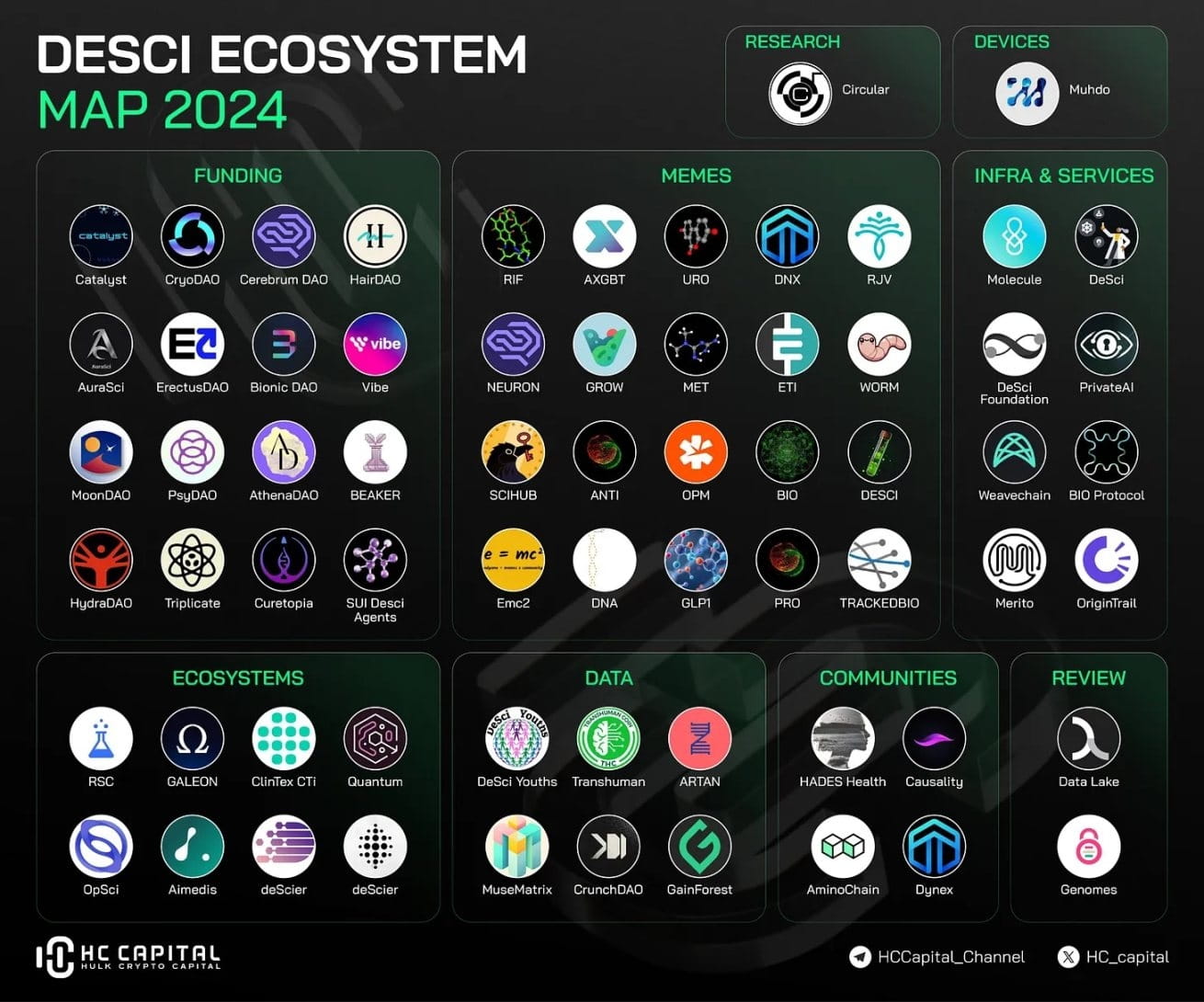Written by: Thejaswini M A
Compiled by: Saoirse, Foresight News
I have a friend who spent a full seven months writing a research grant application.
Seven months is longer than many people spend planning a wedding, and the pressure is likely even greater. She is a talented cancer treatment researcher but spends more energy on fundraising than on actual research work.
The entire system is completely upside down. Research requires funding, but to get funding, one must first prove that the research will be successful — but how can one prove it without conducting the research?

In contrast, some things are simply absurd: a certain YouTube blogger launched a crowdfunding campaign called "Grains of Rice" and raised $100,000 in just one weekend. The irony of this comparison is striking.
Today, in the crypto field, a movement called DeSci (Decentralized Science) is emerging, attempting to innovate research funding models using cryptocurrency and blockchain technology.
Don't be quick to dismiss; you might change your mind after hearing this. This method might actually work.
How bad is the current system?
The traditional research funding process works like this: researchers write detailed research proposals, submit them to government agencies or companies, and then wait 6 to 18 months for a response. Most applications are rejected, and even if approved, they come with a host of restrictions, leading researchers to spend more time on paperwork than on actual research.
The core of this process is 'reducing risk', which sounds reasonable, but the problem is that breakthrough discoveries are inherently risky. From antibiotics to the internet, the most significant scientific breakthroughs often start as 'underappreciated directions' that review committees would not fund.
There is also the issue of publishing papers: researchers must publish results in expensive academic journals, which charge exorbitant fees and set up paywalls for research findings. As a result, research funded by taxpayers is often inaccessible to them.
In the end, excellent researchers spend years stuck in bureaucratic processes rather than solving real problems. Important research is delayed, or even stillborn, while the public, which largely funds basic research through taxes, is isolated from the scientific results they have paid for.
DeSci Emerges
DeSci (Decentralized Science) essentially applies the concept of cryptocurrency to the research field: researchers no longer have to "beg" for funding from review committees, but can crowdfund directly from people who care about their research; research results are no longer locked behind paywalls but are stored on public blockchains, accessible to anyone.
When Ethereum co-founder Vitalik Buterin and former Binance CEO Zhao Changpeng began discussing this concept in public, DeSci gained widespread attention. It is important to note that when leaders in the crypto space focus on something, it often means that the necessary infrastructure is in place for implementation.
The specific operational model is as follows: researchers issue tokens representing their projects, and people fund the research by purchasing these tokens. If the research is successful and yields profitable results, token holders can share in the profits.
This is no longer a theoretical fantasy; many companies are building real infrastructure for decentralized science.
Taking a major player in the field, BIO Protocol, as an example, it has received support from Binance Labs and has strong funding capabilities. BIO has created what it calls "BioDAOs," essentially investment communities that crowdfund biotechnology research. It's no longer a matter of a few wealthy individuals deciding which cancer therapies are worth developing; instead, thousands of people can pool their funds and vote on research directions.
There are also Molecule and VitaDAO, which focus on longevity research and tokenize intellectual property: when researchers achieve certain results, ownership is distributed among all funders. Their supported projects currently include aging research at Newcastle University and longevity research at Copenhagen University.
The scale of funding is also continuously growing. These platforms have processed millions of dollars in research funding, with some individual projects raising hundreds of thousands of dollars through token sales. Although it still seems small compared to traditional funding, the growth rate is astonishing.

@HCCapital
The more I think about DeSci, the more I feel it is profoundly significant. Scientific research is inherently a collaborative process, where researchers build on the work of predecessors, share data, and undergo peer review, and blockchain technology is precisely designed for such transparent collaboration.
The traditional funding system has given rise to distorted incentive mechanisms: researchers have to exaggerate the certainty of their research to secure funding, which in turn hinders exploration in "uncertain but potentially groundbreaking" directions. DeSci reverses this trend. It rewards researchers for sharing all data, including failed experiments, as these may help others avoid unnecessary detours.
Another benefit is that it allows researchers from around the world to participate. Researchers in Nigeria with good ideas can raise funds globally without relying on Western universities or funding agencies. This is significant for the democratization of scientific progress.
Moreover, transparency is inherent: when research is funded through blockchain tokens, everyone can clearly see where the funds are going, eliminating the need to guess whether the funding has gone to actual research or administrative expenses.
Risks and Challenges
Of course, the risks cannot be ignored. The biggest issue is quality control. Traditional peer review, despite its various flaws, can indeed filter out some junk research. In a decentralized system, how can we avoid funding clearly unreliable research projects?
Volatility is also a real problem. If a five-year cancer research project relies on cryptocurrency token financing, what happens if the token price crashes by 90%? Long-term research requires stable funding support.
Regulatory uncertainty also exists. Most countries have complex regulations regarding medical research, drug development, and intellectual property, and it is currently unclear how tokenized research fits into the existing legal framework.
To be honest, most scientists are not 'natives' of the crypto space, and demanding that they suddenly become experts in token economics and DAO governance is really asking too much.
Summary
Despite numerous issues, the development momentum of DeSci cannot be ignored. Related infrastructure is improving, funding is continuously increasing, while the traditional research funding system is deteriorating. When funding agencies take 18 months to approve urgent research funding, while crypto crowdfunding can be completed in just a few days, the efficiency gap is evident.
Early projects have largely focused on biotechnology and longevity research, which makes sense as these fields have clear commercial potential: if funded research leads to new drugs, token holders can share in the profits. But this model is actually applicable to any research that can ultimately create value.
I believe we are at the early stages of a major initiative. It's not that cryptocurrency will replace traditional research funding overnight, but it offers a faster, more transparent new path for global researchers to access.
The true test of DeSci lies in whether it can produce actual scientific breakthroughs, not just raise money. However, given the current state of traditional research funding, trying new methods is certainly worthwhile.
This is just the beginning. The DeSci field is developing rapidly, with new projects emerging continuously, and real money is flowing into actual research. The intersection of cryptocurrency and research funding is giving birth to opportunities that did not exist a year ago.




